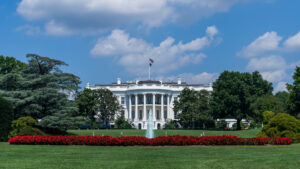
Investors react to tentative US debt ceiling deal
Investors Brace for Uncertainty as Tentative US Debt Ceiling Deal Raises Concerns
Introduction:
The recent tentative US debt ceiling deal has left investors on edge as they grapple with the potential implications for the financial markets. With the deadline to raise the debt limit fast approaching, the agreement has sparked concerns about the stability of the US economy and the impact it may have on global markets. This article delves into the reactions of investors and the uncertainties they face in the wake of this tentative deal.
Body:
The US debt ceiling has long been a contentious issue, with political wrangling often leading to last-minute agreements. The current tentative deal, reached between Democrats and Republicans, aims to suspend the debt limit until December 2022. While this provides a temporary relief, investors are wary of the potential consequences.
One of the primary concerns for investors is the potential for a government shutdown if a final agreement is not reached by the December deadline. A government shutdown could have far-reaching implications, affecting various sectors of the economy and causing significant market volatility. Investors fear that such an event could undermine consumer and investor confidence, leading to a slowdown in economic growth.
Furthermore, the uncertainty surrounding the debt ceiling deal has raised questions about the US government’s ability to manage its finances effectively. Investors rely on stability and predictability to make informed decisions, and any signs of fiscal mismanagement can erode trust in the US economy. This lack of confidence could result in a flight of capital from US markets, leading to a decline in stock prices and a weakening of the dollar.
The global implications of the US debt ceiling deal cannot be ignored either. The US economy is intricately connected to the global financial system, and any disruptions can have a ripple effect worldwide. Investors are closely monitoring the situation, particularly in emerging markets that heavily rely on US investments and trade. A potential default or downgrade of US debt could trigger a global financial crisis, impacting economies far beyond American borders.
In response to the uncertainties, investors have started to adjust their portfolios to mitigate potential risks. Some are diversifying their investments by allocating funds to safer assets such as gold or government bonds from other stable economies. Others are adopting a wait-and-see approach, closely monitoring developments and making decisions based on the outcome of the final debt ceiling agreement.
Conclusion:
The tentative US debt ceiling deal has left investors on edge, uncertain about the future of the US economy and its impact on global markets. The potential for a government shutdown and the doubts surrounding the US government’s ability to manage its finances effectively have raised concerns among investors. The global implications of a US debt default or downgrade cannot be underestimated, as it could trigger a worldwide financial crisis. As investors brace for uncertainty, they are adjusting their portfolios and closely monitoring developments to navigate the potential risks ahead.
